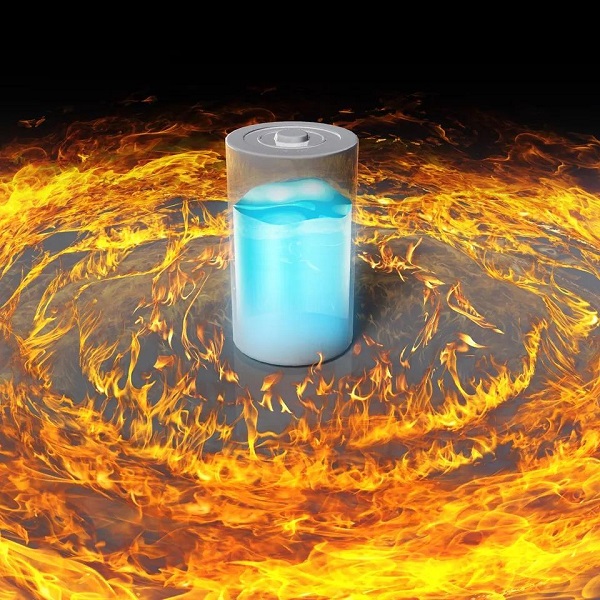Causes of fire in lithium-ion batteries
The nature of the ignition of lithium-ion batteries is that the heat in the battery fails to be released according to the design intent, causing internal and external combustion materials to ignite after ignition. The main reasons for the fire are external short circuit, external high temperature and internal short circuit.

1). Internal short circuit: due to the abuse of the battery, such as the branch crystal caused by overcharge and overdischarge, the impurity dust in the battery production process, etc., it will deteriorate to pierce the diaphragm, cause a micro short circuit, and the release of electric energy will cause the temperature to rise. The chemical reaction of the material brought about by the increase expands the short-circuit path and forms a larger short-circuit current. This mutually accumulating and mutually reinforcing destruction leads to thermal runaway.
2). External short circuit: Take electric vehicles as an example. The probability of danger in actual vehicle operation is very low. First, the vehicle system is equipped with fuses and a battery management system BMS. Second, the battery can withstand a short-term high current impact. In extreme cases, the short-circuit point crosses the vehicle fuse and the BMS fails. A long-term external short-circuit will generally cause the weak points in the circuit to burn out, and rarely cause thermal runaway events in the battery. Now, more PACK companies have adopted the method of adding fuses in the loop, which can more effectively prevent the hazards caused by external short circuits.
3). External high temperature: Due to the characteristics of the structure of lithium ion batteries, SEI membranes, electrolytes, ECs, etc. will undergo decomposition reactions at high temperatures. The decomposition products of the electrolytes will also react with the positive and negative electrodes, and the battery diaphragm will melt and decompose. This reaction causes a lot of heat to appear. The melting of the diaphragm causes an internal short circuit, and the release of electrical energy increases the heat production. This cumulative and mutually reinforcing destructive use results in the explosion of the explosion-proof membrane of the battery cell, the ejection of the electrolyte, and the occurrence of combustion and fire.
Lithium ion battery fire extinguishing method
Analyzed the reasons for the battery fire, when the lithium-ion battery is on fire and needs to be extinguished, let us look at the following recommended methods:
1). If there is a small fire and the flame does not spread to the high-voltage battery part, carbon dioxide or ABC dry powder fire extinguisher can be used to extinguish the fire.
2). When thoroughly inspecting the fire, do not contact any high-voltage components, and always use insulated tools for inspection.
3). If the high-voltage battery is bent, twisted, or damaged in a fire, it will be out of shape, or a problem with the battery may be suspected. Then the amount of water used for extinguishing fires should not be too small, and the amount of water used for fire fighting should be sufficient.
4). It may take up to 24 hours to completely extinguish the battery fire. Using a thermal imaging camera can ensure that the high-voltage battery is completely cooled before the accident is over. If there is no thermal imaging camera, you must monitor whether the battery will reignite. Smoke indicates that the battery is still hot, and the monitoring has to be maintained until at least one hour after the battery no longer smokes.
The emergency rescue manual of GM Volanda in the United States provides guidance on firefighting and extinguishing electric vehicles: If the battery reaches a high enough temperature, leaks and releases electrolyte, the electrolyte must be flammable. This requires a lot of water to cool the battery and extinguish the fire. Because the DC and AC systems are not grounded, firefighters can safely use water as an important fire extinguishing agent, and there is no danger of electric shock. The ABC dry powder fire extinguisher will not extinguish the battery flame. Firefighters should prevent direct internal contact with any high-voltage components during fire extinguishing or release operations, which could potentially cause electric shock.
To sum up, lithium-ion batteries use a lot of water to extinguish fires. It takes a long time and patience. Cooling down is very important. Lithium-ion batteries are not explosive and will not explode under normal circumstances.



